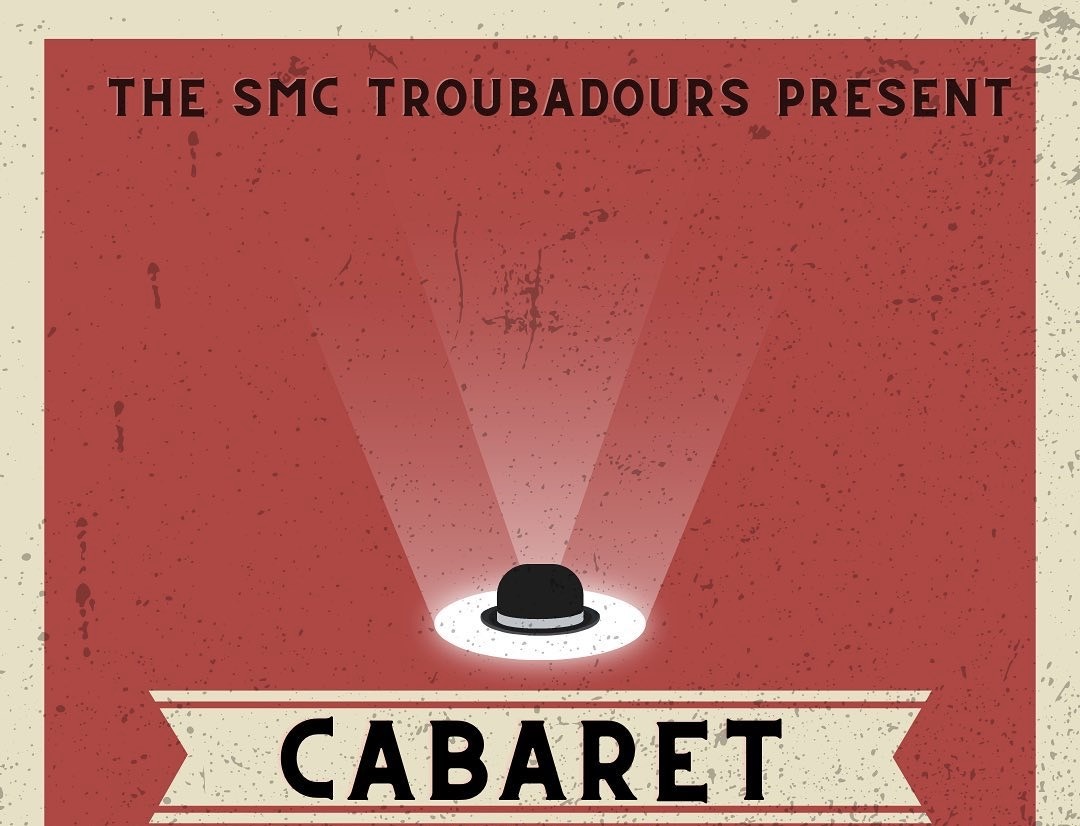Photo Credit: SMC Troubadours
A poignant show that transports its audience into a dizzyingly camp portrayal of hedonism
Agata Mociani, Associate Arts Editor
“Leave your troubles outside! So life is disappointing? Forget it!” the Master of Ceremonies insists, beckoning luridly to the Factory Theatre’s packed audience. “We have no troubles here! Here, life is beautiful!” At face value, this line from Cabaret’s opening number promises an afternoon of campy theatrical indulgence. However, the Emcee’s crooning invitation to glimpse Germany’s Jazz-Age nightlife is actually a sickening moment of foreshadowing. The plot follows a group of ordinary citizens from all walks of life and, at times, feels like a slice-of-life historical piece. Sealed within the opulent bubble of show business, the main characters bicker about romantic relationships, mull over their career ambitions, and engage in excessive, yet entertaining acts of debauchery. By prioritizing their personal issues and purposely ignoring the outside world, they deny and dismiss the rise of fascism, even as the Nazi Party’s power becomes indisputably evident. The result is a frenzied, heart wrenching display of complicity.
Since its release almost sixty years ago, Cabaret has been valued for its poignant lessons about the danger of apathy. The musical, which debuted in 1966, is based on a semi-autobiographical novel by an American writer who experienced life in the Weimar Republic, and was politically indifferent to the growing power of fascism in the nation. Today, it remains equally relevant in its nuanced portrayal of anti-semitism and the consequences that accompany political unawareness. Tickets to the SMC Troubadours’ production of Cabaret sold out almost immediately. The show, which was staged from March 9th to 11th at the Factory Theatre, embodied the sharp, sickening energy of its source material. The audience was swept into a dizzyingly camp portrayal of hedonism in 1930s Berlin. The show featured outstanding performances from all of the cast members. The actors’ takes on their characters felt fully fleshed out, and I was invested in all of the subplots. My dread and growing anxiety as an audience member was a testament not only to the power of the musical and its themes, but to the Troubadours’ excellent performance.
U of T student Alicia Balduzzi stood out as the Master of Ceremonies of the Kit Kat Club. The Emcee is an androgynous personification of Germany, a Greek chorus whose complexity is exacerbated by the shifting political and social climate. A man usually plays this part, but the role has always exuded an air of gender fluidity. Balduzzi’s rendition of Emcee was flamboyant, sinister, and sapphic, adding another layer of subversiveness to an already gender-non-conforming character. All of the actors skillfully embodied a range of unsettling facets of German culture, but the juxtaposition between Emcee’s overt queerness and their participation in propaganda felt especially chilling.
The directorial decision to include a limited amount of props (and no backdrops) allowed the audience to focus completely on the actors. I was awed by the set designer’s (Emelia Findlay) ability to convey the atmosphere of a gaudy, yet extravagant cabaret with a minimalistic set. The props she incorporated into the musical all felt intentional and integral to the plot. At times, Nika Gottlieb’s fantastic costume designs made me forget that I was watching a show. I felt transported through time, a feeling that was at once deeply immersive and discomfiting. All in all, the experience of watching the Troubadours’ take on Cabaret is one I am deeply thankful for, and I recommend keeping up with their future theatrical endeavours.




